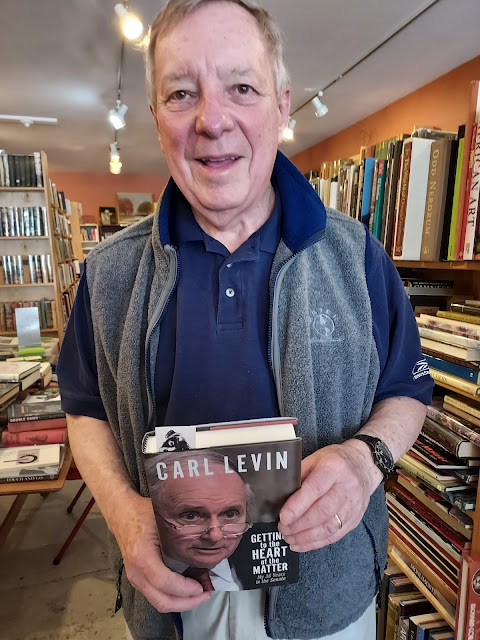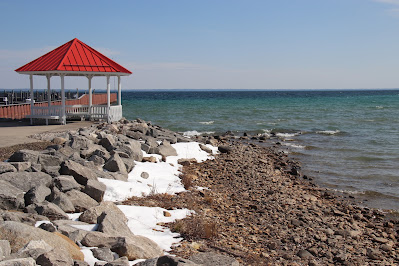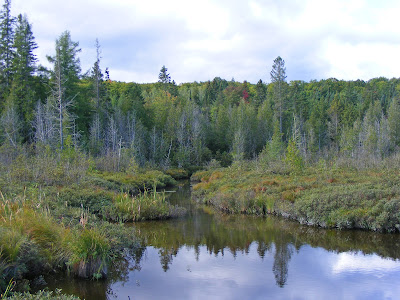 |
| Wednesday morning, 12/11/24 |
Warning: By the time I got to the end of this post, a couple of days after it began, even I couldn't figure out how I'd gotten from the starting point to the arrival point. -- But then, or I should say now, the arrival point has changed from an end to a way station, as I've added a section of reflection on the next novel I read.
Bear with me, please. It's that time of year....
Odysseus went off to the Trojan war and after that spent another decade wandering the seas, encountering monsters and other challenges, including the sorceress Circe, who seduced and held him captive for a year on her island. (He liked it, he liked it!) Finally breaking free of her spell, he made his way back to Ithaca and his faithful wife, Penelope, who had been fending off suitors all the while. In his novel L’ignorance, author Milan Kundera asks, now that Homer’s hero has returned after an absence of twenty years, does anyone in Ithaca want to hear about his adventures? Will Odysseus feel at home again after such a long absence, glad to be back at last? What is the truth of homecoming? And what about memories of his past life in Ithaca? Do any two people ever have identical memories, even of experiences they shared?
When the Communists came to power in Czechoslovakia, veterinarian Joseph fled Prague and established himself in Denmark, taking a Danish wife. She later died, but Joseph feels his life with her continues in Denmark. Irena, another Czech emigrant, made a new life in Paris, feeling freer there to be herself than she ever had felt in her native country under the influence of her strong mother. Neither Joseph nor Irena felt a strong need or urge to return to Prague, but Joseph’s wife had pressed him, as did Irena’s best friend in Paris, to go home again. It was only natural! And so each undertakes the journey, neither planning a permanent return.
At the start of her journey to Prague, Irena recognizes Joseph in the airport, and he, responding to her friendly smile, pretends he remembers her, as well. Both will busy with family and old friends in Prague, but finally they manage to find time to share a meal, during which the easy familiarity of speaking the Czech language, their native tongue, draws them together dizzily, along with the similarity of their separate experiences with their old acquaintances. Joseph, however, just as he remembered differently or failed to remember altogether events and conversations his brother brought up in conversation, has no memory of a former encounter with Irena, a long-ago meeting that is important and vivid in her memory.
Often my two younger sisters will reminisce about something in our family life that I don’t remember at all, and I’ll say, “Maybe that was after I was gone.” Or they will have news of someone from school days. “Didn’t you know her older sister?” I don’t know. Did I? I’ve been gone for – well, never mind how long….
Joseph’s family in Prague asked no questions about Denmark or even about his wife. What is most real to him lacks any interest at all for them. Irena also found herself frustrated at the lack of curiosity old Czech friends show in the life she successfully created for herself in France. She brought French wine for a party, and her friends snub her by ordering beer. Kundera notes that Odysseus had had two decades of adventures, but why would the people in Ithaca care for the stories he could tell? His adventures had been no part of their life!
A couple of local friends stopped by the bookshop on Friday and persuaded me to put a sign on the door and come with them to the New Bohemian Café for lunch, their treat. The village streets were practically deserted, so I let my arm be twisted. (It didn’t take much.) Both these friends, husband and wife, are readers, and both have also been world travelers, so when we compared notes on our current reading and I shared with them Kundera’s insights into travelers’ returns, they both laughed in recognition. “That is the truth!”
 |
| In 2025, the Artist will appear in a Gallimard title. Stay tuned! |
I’ll need to re-read I’ignorance again very soon. Not only is mine the French edition, but Kundera changes characters and settings from one section to the next within a chapter, without giving indication of who the speakers are in dialogue. Since there are several other characters besides the two I’ve discussed here, that can be challenging for a reader. Where are we? In what time period? Who is speaking to whom? I found myself turning back pages again and again, trying to figure out where I was.
Years ago (okay, decades ago), in the company of an elderly woman who was living far from the places she had grown up and lived and whose memory regularly dredged up only half a dozen or fewer incidents from her younger days, the present nothing to her but a blooming, buzzing confusion, I thought how important it is to grow old in a place where other people share at least some of your memories. Now Kundera points out what should have been obvious to me from conversations with my sisters, which is that no two people ever have the same memory of anything. And yet I still think that if I share a general frame of reference with someone, we will have a lot to talk about, however much we may disagree on the details. Neighbors long gone, children who have grown up and moved away, businesses from the old days, the history of local buildings, local secrets that eventually came to light and when and how we learned them – all this and more does not have to remembered exactly as another remembers it to be subject matter for absorbing conversation. At least, that is true for me in conversation with my sisters, with old friends in Kalamazoo, with Leelanau County friends, and even with people I met as winter neighbors in Cochise County, Arizona.
As for favorite books of childhood and beloved books of later life – now there we don’t even need to have lived in the same place when we first read the books to share with another what the stories and characters meant to us, and while different scenes vary in brightness from one person’s memory to another, and I may have forgotten completely what you found most important in a particular book we both read, no lack of interest prevents us from comparing notes. Little wonder that one of the first thing transplanted retirees do is join a book club in their new place of residence. Love of reading is a common bond that draws strangers together and creates friendships, while classics reach across whole generations.
 |
| This copy went to France with us and came back with us to Michigan again. |
Now, I want to ask, what were – and are – some of your favorite books from childhood and adolescence? Do you re-read those books today? Here’s a starter list off the top of my head, some titles I discovered later in life, plus a couple I haven’t read but know that other people adore:
The Adventures of Peter and Wendy
Anne of Green Gables
Betsy-Tacy
Black Beauty
The Black Stallion
The Borrowers
The Boxcar Children
Bread and Jam for Frances
Charlotte’s Web
Diary of a Young Girl
The Hobbit
The Jungle Books
The Land
Little Bear
The Little Prince
Little Women
Mistress Masham’s Repose
Parents Keep Out
Petunia
The Secret Garden
Through the Looking Glass
The Velveteen Rabbit
Where the Sidewalk Ends
Where the Wild Things Are
Wind in the Willows
The Wizard of Oz
A Wrinkle in Time
And because of the season, I’ll add:
A Christmas Carol
The Night Before Christmas
How and why did I leap in this post from the fiction of Milan Kundera to books for young people? Who knows? The reading, roving mind is a mysterious thing!
 |
| Resident princess tomboy! |
Coming back days later, having finished reading another book of emigrants, Vilhelm Moberg’s Unto a Good Land --
What was the matter with Kristina? What did she long for? Didn’t she live here, have her home here – wasn’t she at home? How could she long for home when she was already at home?
Moberg’s characters fled Sweden to make a better life in North America, one where they wouldn’t have to fear starvation for their children. Their journey to Minnesota, by sea, river, and land, took so long that they arrived too late to plant crops before winter was upon them, but Karl Oskar did manage, with the help of his friends, to build a log house for his family before the cold and snow were upon them, and Kristina was able to give birth to her baby in the house, rather than in the shanty, their first temporary shelter now become a cowshed.
While there was nothing stopping Kundera’s Joseph and Irena from returning permanently to modern Prague -- they simply had no interest, having made new lives elsewhere in Europe -- it was different in the mid-1800s for Karl Oskar and Kristina, who had left their parents behind and crossed the ocean to a new land. A year after leaving Sweden, awaiting a first letter from home, they wonder if their parents are still alive, knowing they will never see them again in this life.
My Leelanau friends and I, whether the third generation in this place, newly arrived, or something between those two extremes (only three decades for me in this county, not three generations), could pull up stakes if we chose, but for me that is unthinkable. This is the place the Artist and I made our dream come true, our country county life. I have watched trees appear and grow (the catalpa and hawthorn and young white ash trees) and have planted others (my apple trees). Kristina misses a certain apple tree back in her childhood home. The apple tree in my parents’ yard is long gone, as are they. My apple trees are here. My home is here -- in all seasons.











































